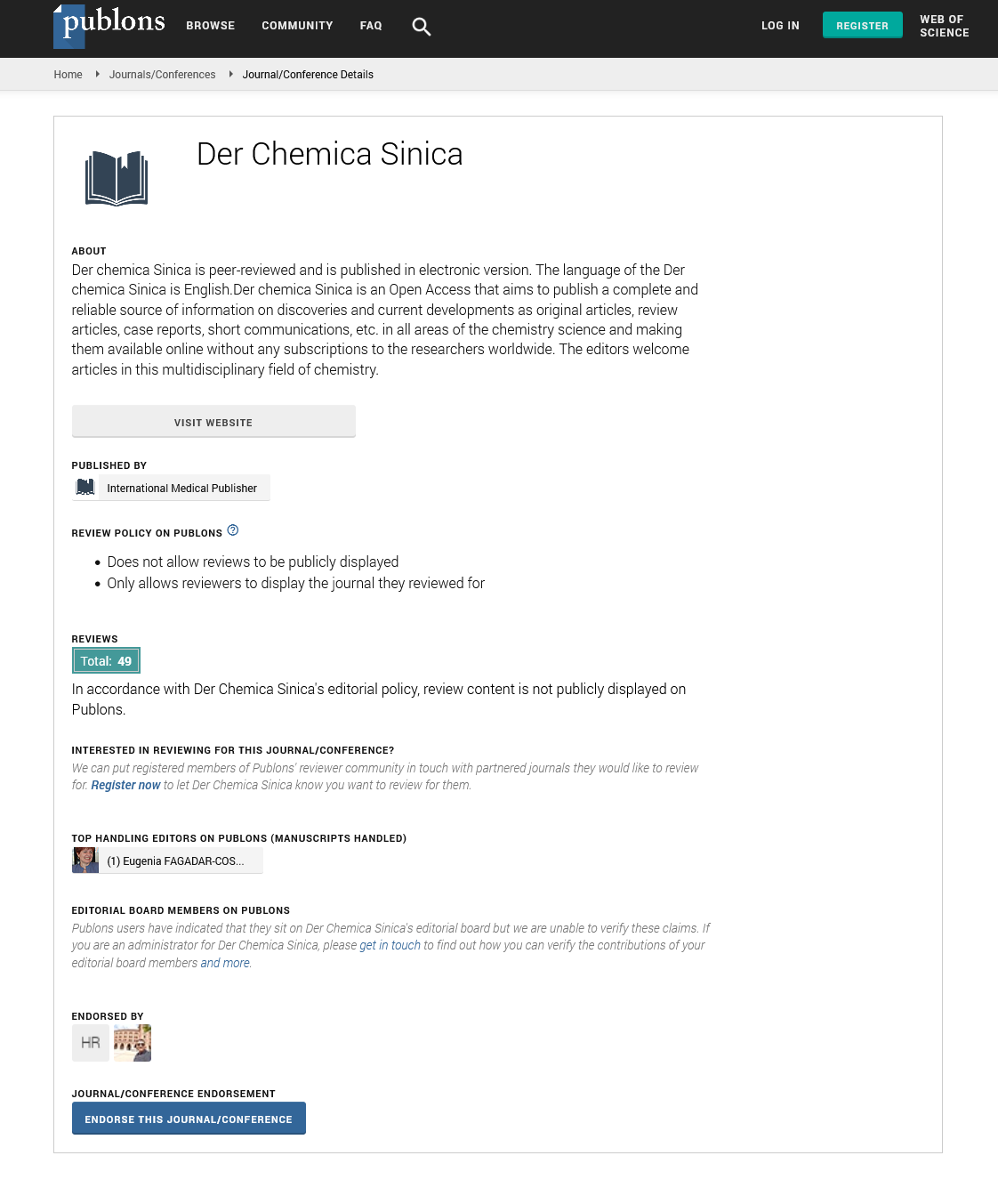ISSN : 0976-8505
Der Chemica Sinica
Abstract
Determination of kerosene in gasoline using fractional distillation technique
The adulteration of petroleum products especially gasoline is a serious problem in many countries. The large differences in prices of gasoline, diesel and kerosene in Jordan are the main driving factor for adulteration. The fact that kerosene is miscible in gasoline makes adulteration an easy task. The unhealthy and unethical practice of adulteration of gasoline with cheaper kerosene or with diesel leads to severely damaging consequences on automotives engines and increases vehicles emissions which are of a major concern to environmental. All engines are designed and manufactured to run on specific fuel, they will emit substantially more pollutants if the fuel specification is changed. When kerosene is added to various types of automotive gasoline, the octane quality will fall below the octane requirements of engine and therefore engine knocking can occur. It is evident in this work that fuel adulteration in Jordan is carried out mainly by blending kerosene into regular gasoline. The price of kerosene in Jordan is much less than that of gasoline. This encourages greedy dealers to practice this illegal act. In this research, the fractional distillation analytical methods were utilized for detecting regular gasoline adulteration methods of analysis have been optimized, samples have been collected from different gas stations in northern Jordan and then tested. The method of analysis was simple, less expensive and very comparable to other high sophisticated techniques.
Author(s): Adnan A. Dahadha and Salem A. Barakat
Abstract | PDF
Share This Article
Google Scholar citation report
Citations : 6019
Der Chemica Sinica received 6019 citations as per Google Scholar report
Der Chemica Sinica peer review process verified at publons
Abstracted/Indexed in
- Google Scholar
- Open J Gate
- Genamics JournalSeek
- China National Knowledge Infrastructure (CNKI)
- Directory of Research Journal Indexing (DRJI)
- Publons
- MIAR
- International Committee of Medical Journal Editors (ICMJE)
- Serials Union Catalogue (SUNCAT)
- Geneva Foundation for Medical Education and Research
- Secret Search Engine Labs
- Euro Pub
- CAS (Chemical Abstracting Services)
- University of Barcelona
Open Access Journals
- Aquaculture & Veterinary Science
- Chemistry & Chemical Sciences
- Clinical Sciences
- Engineering
- General Science
- Genetics & Molecular Biology
- Health Care & Nursing
- Immunology & Microbiology
- Materials Science
- Mathematics & Physics
- Medical Sciences
- Neurology & Psychiatry
- Oncology & Cancer Science
- Pharmaceutical Sciences
